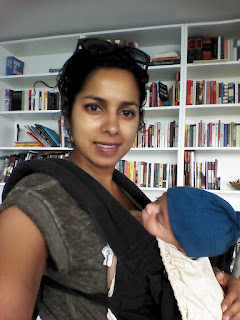It’s hard to believe that I’ve been residing in Hawaii for
three and half years. Since I left the East-West Center, I’ve been working at
the University of Hawaii, supporting for their international collaboration and
exchange programs with the Southeast Asian countries.
Life is peaceful in Hawaii – a common saying by many
peoples. However, I feel my life has been flowing with workload in the program
administration associated with a lot of paper work and logistic arrangement.
Moving from the business environment, my background and work experience in
Vietnam, to the field of international education in Hawaii, I’ve been
passionate and inspired, first by the APLP, then the UH-College of Education. This
has made my major of international relations slightly switching to the
international academic affairs. In fact, I have a desire to pursue a master or
PhD in student affair administration. Would this be too ambitious at this
mid-age? Would this help me to achieve my long-term goals for my career of
international affairs? Would this allow me to have time for myself, family,
kids, and social activities? I am still struggling
for a final decision.
Suddenly and recently, I’ve had time to review my short-term
and long-term goals as written in my PAPs during our time studying at APLP. Perhaps
many of you may remember it J.
It’s only recent I have time to think about the PAPs because of the summer
break. While many professors and students were enjoying their vocation, as
usual, I made a three week-trip to Vietnam to support for the UH faculty
developing new partnerships in higher education. Again, I was extremely busy to
organize a lot of activities such as conference, workshops, and meetings - a
lot of administrative and logistic arrangement. Many times I told myself, the
paid-off and reward from my work, is a free trip back to my home country so I
have time to visit my family, relatives, and friends. Well, I am kind of thinking again – is this
worth for working in the administration area for 9 months to trade off with a
few weeks for both work and fun in Vietnam? Now, I’ve become a dual citizen. I
have my own company (www.viethawaiistrategic.com)
that was established since March 2013. Haven’t been able to do anything
profitable because of the UH workload. And I have quite some project ideas, for
example, developing some student exchange (summer) programs between Hawaii and
Vietnam. Again, I have not had time to make it happened.
Then I started to hear the opportunity for working with the
Federal Government. One of many other
benefits (compared to the State job at UH) to work for the Federal Government
is a better income and flexible working hours. Taking a chance, I submitted a
couple of application in July. Just
received an offer for a position as a Regional Coordinator for a DOD agency,
working remotely with colleagues and supervisors in DC! I have not really accepted
the offer yet due to another opportunity with the Hawaii Pacific University.
Had two interviews with them early this week for the position as the
International Student Advisor. Both of the jobs match well with my career
interest. It would be tough for me to
choose which one if I receive offer from HPU as well. Hmmm…..I would appreciate
any comments and advice from my dear G-12 fellows. Mahalo! Loan

